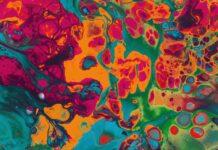Nanomedicine, a burgeoning field at the intersection of nanotechnology and medicine, represents a revolutionary approach to diagnosis, treatment, and prevention of diseases. It employs nanoparticles and nanoscale materials, typically ranging from 1 to 100 nanometers, to target specific cells, tissues, or organs at the molecular level. The precise control and manipulation enabled by nanotechnology provide immense potential for enhancing drug delivery, imaging, diagnostics, and therapy. Nanomedicine holds the promise to revolutionize healthcare, offering highly targeted and personalized treatments with reduced side effects and enhanced therapeutic outcomes.
At the core of Nanomedicine lie nanoparticles, which serve as versatile carriers for drug delivery and imaging agents. These nanoparticles can be engineered to encapsulate drugs, genes, or other therapeutic molecules and deliver them precisely to the intended site of action within the body. Their small size and high surface area-to-volume ratio enable efficient drug loading and enhanced bioavailability. Moreover, surface modifications of nanoparticles with ligands or biomolecules ensure targeted delivery, directing the therapeutic payload to specific cells or tissues while minimizing exposure to healthy ones. This precision targeting is a hallmark of Nanomedicine, enhancing treatment efficacy while minimizing systemic toxicity.
Nanomedicine finds extensive application in cancer treatment, showcasing the potential to revolutionize the way we combat this complex and challenging disease. Nanoparticles can be engineered to deliver chemotherapeutic drugs directly to cancer cells, minimizing damage to healthy cells and reducing the severe side effects associated with traditional chemotherapy. Additionally, nanoparticles can enhance the efficacy of radiation therapy by selectively targeting and sensitizing cancer cells to radiation, improving the overall therapeutic outcome. The multifunctional nature of nanoparticles allows for the integration of diagnostics and therapeutics, paving the way for theranostic approaches in cancer treatment, where diagnosis and therapy are combined for a comprehensive and personalized approach.
In the realm of diagnostics, Nanomedicine offers highly sensitive and specific imaging techniques, enabling early and precise disease detection. Nanoparticles can be engineered as contrast agents for various imaging modalities such as magnetic resonance imaging (MRI), computed tomography (CT), positron emission tomography (PET), and optical imaging. These nanoparticles enhance the imaging resolution, providing detailed insights into the molecular and cellular level changes associated with diseases. Furthermore, the ability to load imaging agents onto nanoparticles and target them to specific tissues allows for real-time monitoring of disease progression and treatment response.
Nanomedicine also holds immense promise in neurodegenerative diseases, where targeted drug delivery to the brain is a significant challenge due to the blood-brain barrier. Nanoparticles can be functionalized to bypass or transiently open the blood-brain barrier, facilitating drug delivery to the brain for the treatment of diseases like Alzheimer’s and Parkinson’s. Additionally, nanoscale materials can aid in the early detection and monitoring of neurodegenerative disorders through sensitive imaging techniques, enabling timely interventions and potentially slowing disease progression.
Infectious diseases, too, stand to benefit from the advancements in Nanomedicine. Nanoparticles can be engineered to deliver antimicrobial agents or vaccines to target infections. This targeted approach enhances the efficacy of treatments while minimizing the risk of antimicrobial resistance. Moreover, the development of rapid and highly sensitive diagnostic assays based on nanoscale technologies can enable early detection of infections, allowing for prompt intervention and control of disease outbreaks.
The continued growth of Nanomedicine is fueled by ongoing research and innovations. Scientists and researchers are actively exploring novel nanomaterials, improving the design of nanoparticles, and optimizing their surface properties to enhance their biocompatibility, stability, and functionality. Furthermore, the integration of artificial intelligence (AI) and machine learning in Nanomedicine holds immense potential. AI algorithms can analyze vast amounts of biomedical data to predict disease outcomes, optimize treatment regimens, and design nanoparticles for specific applications, significantly accelerating research and development in the field.
Nanomedicine represents a transformative paradigm in healthcare, promising unparalleled advancements in diagnosis, treatment, and prevention of diseases. The precise and targeted approach enabled by nanotechnology holds the key to overcoming numerous challenges in healthcare. As research and technological advancements continue, Nanomedicine is poised to revolutionize medicine, offering personalized and highly effective therapeutic interventions. The journey of Nanomedicine is an exciting one, holding the promise of a healthier future for individuals worldwide.
Furthermore, the potential applications of Nanomedicine extend beyond disease treatment and diagnostics. It is being explored for regenerative medicine and tissue engineering. Nanoparticles and nanoscale materials can be utilized to create scaffolds and delivery systems that promote tissue regeneration and repair. These innovative approaches can enhance wound healing, bone regeneration, and even aid in creating functional artificial organs. The ability of nanomaterials to mimic the extracellular matrix and support cell growth and differentiation is a breakthrough in tissue engineering, offering hope for patients in need of organ transplants or tissue replacements.
In the field of drug discovery, Nanomedicine plays a critical role by facilitating more efficient and accurate screening of potential drug candidates. Nanoparticles can be utilized to encapsulate libraries of compounds and deliver them to targeted cells for high-throughput screening. This approach allows for a rapid evaluation of drug efficacy and toxicity, significantly accelerating the drug discovery process. Additionally, nanoscale technologies enable researchers to study and understand biological processes at the molecular level, providing valuable insights for drug development and design.
However, the progress and widespread adoption of Nanomedicine are not without challenges. Safety and regulatory concerns are paramount, necessitating comprehensive studies on the potential toxicological effects of nanoparticles. Understanding the long-term impacts of nanomaterials on human health and the environment is crucial for responsible and ethical deployment. Standardization of testing protocols, characterization techniques, and safety guidelines is essential to ensure the safe and effective use of Nanomedicine.
Ethical considerations also come into play, particularly regarding the privacy and security of health data generated through Nanomedicine technologies. The collection, storage, and analysis of vast amounts of individual health data pose concerns regarding data privacy, consent, and potential misuse. A robust legal and ethical framework is required to address these concerns, ensuring that the benefits of Nanomedicine are realized while safeguarding individuals’ rights and privacy.
In conclusion, Nanomedicine stands at the forefront of cutting-edge research and innovation, offering a transformative approach to healthcare with far-reaching implications. The potential for precise and targeted treatments, early disease detection, and innovative approaches to regenerative medicine positions Nanomedicine as a cornerstone of future healthcare. The collaborative efforts of researchers, clinicians, policymakers, and technologists are vital in advancing the field and addressing the associated challenges. As we navigate the exciting path of Nanomedicine, a future where personalized, efficient, and safe healthcare solutions are accessible to all becomes increasingly promising. The journey of Nanomedicine is one of discovery, progress, and hope, heralding a new era of healthcare that holds immense potential to positively impact lives and well-being.

















